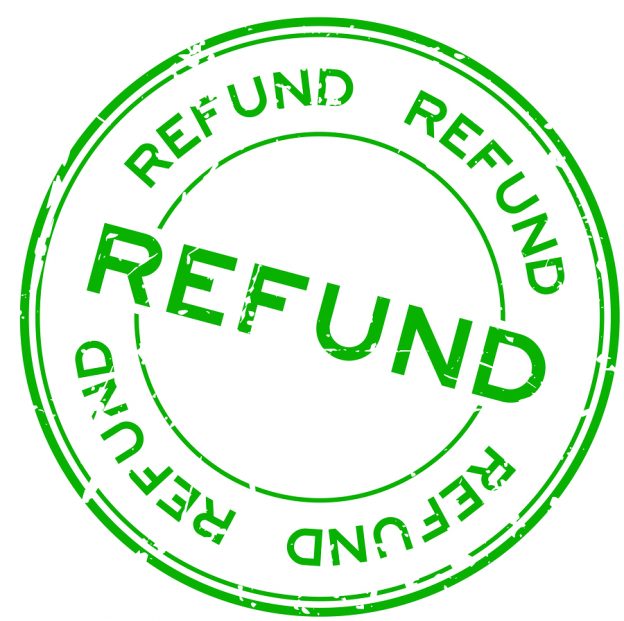
Payment Protection Insurance (PPI) is an ‘extra’, designed to cover people if they find themselves unable to make their credit card or loan repayments.
It is impossible to avoid hearing about the scandal of companies mis-selling PPI and many people have now been financially compensated.
There is now the question of whether or not this compensation amount is taxable.
PPI arrangements
Loans
If PPI is paid as a single premium at the beginning of a personal loan, then it is usually added to the balance. Therefore interest is paid on the PPI amount alongside the loan total.
Monthly premiums for PPI are based on the monthly repayment total and is added onto the loan repayment amount.
Credit Cards
Monthly premiums for PPI on credit cards are based on a percentage of the debit balance and are added to the monthly balance.
Winning compensation
If you have successfully won your PPI compensation claim, then you have probably been awarded ‘General Redress’. This is designed to put you in the situation you would have been in, had you not taken out PPI cover.
This may lead to a refund of the PPI payments, sometimes with historic interest (interest paid on premiums added to the amount owed), this can also mean you are owed 8% simple interest as compensation (what you would have earned if your money had been in a savings account instead of paying for PPI).
What is taxable on a PPI refund?
You do not owe any tax on a PPI cash refund.
You do owe tax on the 8% interest because it is seen as extra income by HMRC. In other words, if your cash had been in a savings account, you would have been liable to pay tax on its earnings.
Are you in one of these common PPI scenarios?
Single Premium
- Loan and PPI still running (SAIM2115)
- Loan repaid early and PPI cancelled (SAIM2120)
- Loan and PPI run full term (SAIM2125)
- Loan still in existence but PPI changed (SAIM2130)
Monthly Premium
- Credit card and PPI still running (SAIM2135)
- Credit card still being used but PPI cancelled (SAIM2140)
- Credit card closed and PPI cancelled (SAIM2145)
What rate of tax do I have to pay on the interest?
You pay the interest at the same rate as your tax band. Basic rate taxpayers pay 20%, Higher Rate taxpayers pay 40% and Additional Rate taxpayers at 45%.
How to pay tax on your PPI refund
You do not have to go through the self-assessment system to pay this back (unless you are already in it) cue massive sigh of relief. You do need to get in touch with HMRC, declare the amount and then you have two payment options. You can either pay it off straightaway as a lump sum, or instruct HMRC to spread out the payment over the year through your tax code.
Does this apply to everyone?
No, it’s not that cut and dry. Some companies may have already deducted the tax before they issued you with your compensation amount, so you need to check. Any refund from a bank or building society should have an accompanying letter which explains your tax position.
HMRC explains…
“If banks and building societies are paying the interest then there is no obligation on them to deduct tax because the interest is not interest on a deposit and there are specific exemptions for banks and building societies from the need to deduct tax from yearly interest. All other companies have an obligation to deduct tax from yearly interest when it is paid. If a company does deduct tax then there is a statutory requirement that it advises the customer when making the payment that tax has been deducted and the gross and net amounts of interest.”
As usual, every situation must be worked out individually, so get checking.
PPI refunds Good to know
- If you do not pay tax and tax has been deducted from your compensation, then you may be able to claim it back.
- As a basic rate taxpayer, if your tax has been deducted then you don’t have to do anything unless you fill in a tax return. Just make sure that you fill in the relevant boxes to include the interest amount.
- Basic rate taxpayers who have not had the tax on interest deducted need to get in touch with HMRC.
- Higher rate taxpayers should talk to HMRC about the taxable interest, whether it has already been deducted or not.
How do I reclaim my tax?
We can help you sort through all the regulations and make sure that you are both tax compliant and tax efficient. Any tax claims can go back four years.
Anyone who has been paid PPI compensation is eligible, whatever your residency status. Whether you currently live in the UK, used to live here or have never lived here – if you have received a PPI compensation payment, you could be due tax relief.
The rules apply to the PPI repayment, which is determined by the origin of your finance, and are not linked to your country of residence.







